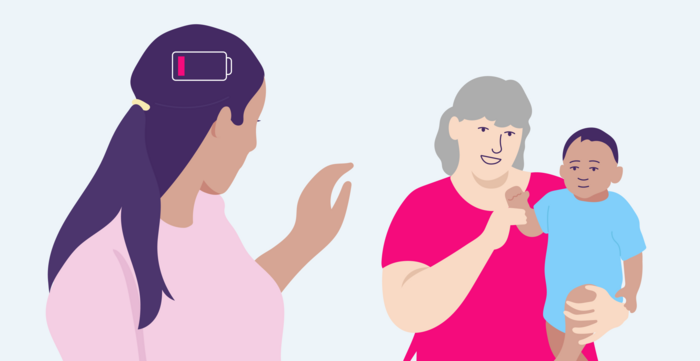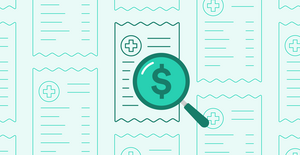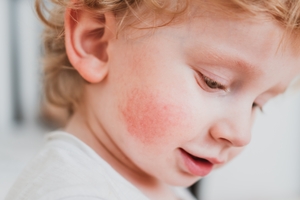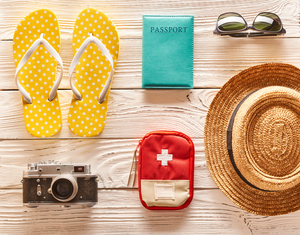For most of us, the promise of an impending summer break once inspired pure, giddy excitement and joy. Then some of us became parents. And then there was COVID.
Let’s face it: for parents, the unbridled enthusiasm that summer break used to evoke, very likely — and understandably — diminished as worries about scheduling, daycare, camp sign-ups, and more, took precedence. And when the pandemic hit, the concept of long, unstructured, freeform days with kids who had nowhere to go (while parents, of course, still had jobs to do), incited a ton of anxiety, to be sure. It also resulted in the exacerbation of a phenomenon that was well documented, even before the pandemic: parental burnout.
The definition of parental burnout can vary depending on who you talk to, but the concept was defined in a recent paper by the Clinical Psychological Science Journal as “an overwhelming exhaustion related to one’s parental role, an emotional distancing from one’s children, and a sense of parental ineffectiveness.” Sound familiar? San Diego-based licensed marital and family therapist and mom of two young boys, Alyssa Mass, MFT, has her own definition. “Exhaustion, irritability, impatience — mix together, now add a huge scoop of guilt and blend them altogether,” she says.
Why Parental Burnout May be Particularly Rough This Summer
No matter how you personally define it, parental burnout is real and it’s rampant. According to one study published last fall by the UK nonprofit, Action for Children, over 80% of parents are struggling with at least one symptom of burnout due to the pandemic. And researchers have found that no matter the specific cause, those who experience parental burnout typically wind up there because of far too much stress and far too few resources to cope with it.
“Everyday with young kids can be uniquely challenging!” Mass says. “But kids tend to thrive when they know what to expect and what's coming so this is where a schedule and routine become so important — I consider them the gears that make the system run smoothly! In the summer, everything shifts and that just has the potential to throw everyone off balance.”
And while COVID restrictions have eased in many areas of the country and scores of parents have been able to breathe a small sigh of relief as older kids can return to some sense of normalcy, parents of young kids may still be wracked with anxiety. According to a recent report from NBC News, while the FDA could authorize vaccines for kids under age 5 soon, babies, toddlers, and preschoolers have, to date, not been eligible for immunization. That means parents to young children could be facing uniquely tough challenges on top of the trying circumstances all caretakers in the COVID era have been facing.
“I think that’s creating a lot of feelings of isolation — and anger — amongst this group. To watch as the whole world seems to move on and ‘forget’ that a large set of kids is still extremely vulnerable,” Mass says. “It also creates a myriad of complications in families with kids of different ages where some are able to be vaccinated and some still aren't eligible.”
All that said, parental burnout isn’t an inevitable result of caring for kids — even during a challenging time like the summer. Mass, a personal and professional veteran of managing stress and overwhelm with young children, has some tools for parents to preserve their sanity and lower their stress levels over the summer and beyond.
How to Effectively Manage Parental Burnout This Summer
Here’s the thing about parental burnout (and stress in general): a bubble bath, five-minute meditation, or a long run aren’t going to rectify the situation and instantly bring back balance. As psychiatrist Dr. Pooja Lakshmin, M.D., wrote for the New York Times, “For parents, a healthy approach to self-care does not mean adding more tasks to your family to-do list — it means firmly deciding what you will not do and setting boundaries.” Here are some strategies to do just that — and retain some sense of calm — this summer.
Take as much control of the calendar as you can
While it’s not always possible to perfectly schedule the events of every day, Mass says a little research goes a long way. So if you can find pockets of time to figure out summer daycare, camps, or carpool shifts now, you may be able to spare yourself chaos down the line. “Logistically speaking, I always suggest planning ahead,” she says. “Particularly with COVID restrictions still present at certain places for younger kids.
Make sure you are still a priority
It can be so easy to let your own health and happiness fade into the background when you have little ones depending on your every move, but experts like Mass say neglecting your own well-being will only fast-track your journey to burnout. Instead, do what you can to retain all the good-for-you habits that keep you feeling your best, physically and mentally, whether that’s regular workouts, dinners with friends, or a night with your favorite Netflix show. “We've all been managing young kids through COVID so, at this point, I think it's more about managing the overall fatigue that has come with that than anything else,” Mass says. “Take care of yourself so you can take care of your kids.”
Feeling isolated in your parental stress won’t help you avoid the fate of burnout. It can be tough — especially for moms who are used to shouldering so many burdens and juggling all the things — to ask for help, but doing so will pay off in a big way. And your vulnerability might even provide comfort and care to others in your circle. “Before school ends, decide what you're comfortable with, COVID-wise, and do your due diligence so you're ready to go when summer starts,” Mass says. “Find extra support by coordinating with any caretakers ahead of time — especially those whose schedules might also change during the summer.”
Whether You Feel Like It Or Not, You’ve Got This
One thing parents almost universally don’t do enough of is give themselves credit. There’s no debate that parenting is among the hardest jobs in the world, and performing that job during a season that lacks organization — and doing all of that during an ongoing global health crisis! — is a lot to say the least. Do what you can to pat yourself on the back daily and remember that you’re not alone.
“Don't let guilt rule your life,” Mass says. “You're doing a good job. Most parents really, really, really don't hear that enough.”
Summary of Strategies
- Plan ahead to a point: I will try to control the things I can and let go of what I can’t.
- Prioritize self-care: I will continue to engage in healthy behaviors that keep me feeling my best.
- Cultivating community: How can I seek support from those around me?
The views expressed by authors and contributors of such content are not endorsed or approved by Solv Health and are intended for informational purposes only. The content is reviewed by Solv Health only to confirm educational value and reader interest. You are encouraged to discuss any questions that you may have about your health with your healthcare provider.
FAQs
What is parental burnout?
Parental burnout is a state of overwhelming exhaustion related to one's parental role, often accompanied by emotional distancing from one's children and a sense of parental ineffectiveness.
How prevalent is parental burnout?
According to a study, over 80% of parents have experienced at least one symptom of burnout due to the pandemic.
How can parental burnout be managed?
Parental burnout can be managed with strategies such as planning ahead, prioritizing self-care, and seeking support from the community.
How can parents avoid burnout during the summer?
Parents can avoid burnout during the summer by taking control of their schedule, making themselves a priority, and leaning on their community for support.
Is parental burnout inevitable?
No, parental burnout is not inevitable. It can be managed and mitigated with the right strategies and supports.
How can community support help in managing parental burnout?
Community support can help in managing parental burnout by reducing feelings of isolation and stress. It can be tough to ask for help, but doing so can provide comfort and care to others in your circle as well.
What is the role of guilt in parental burnout?
Guilt can exacerbate feelings of parental burnout. It's important to remember that you're doing a good job and not let guilt rule your life.
How prevalent is parental burnout due to the pandemic?
According to a study by the UK nonprofit, Action for Children, over 80% of parents are struggling with at least one symptom of burnout due to the pandemic.











